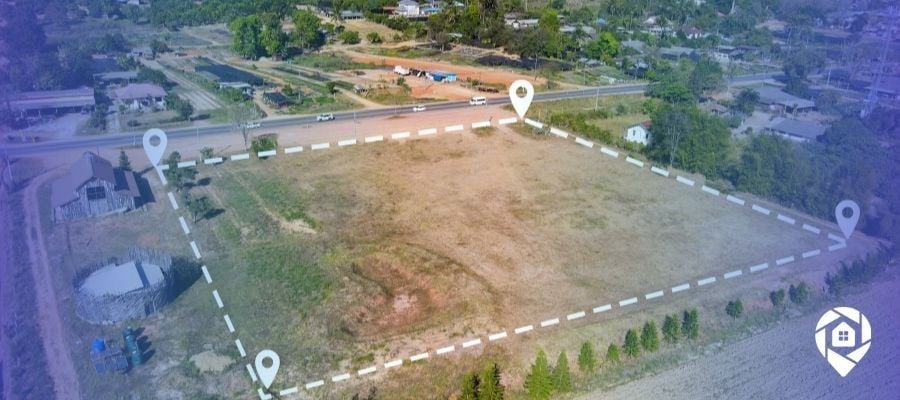
How to Locate the Owner of a Property in Minutes

Whether you're a real estate investor looking for your next big deal or someone interested in buying a home that's not for sale, knowing how to locate the owner of a property can open doors—literally. Tracking down property owners is a smart move if you're serious about making offers, gathering info, or just getting ahead in a competitive market.
It might seem like a job for private investigators, but it’s actually easier than most people think, especially with the right tools and strategies. This guide walks you through the basics, including online methods, public records, and even property search apps that make the process faster and more accurate.
Let’s start with the "why" before we get into the “how.”
Why You Might Need to Locate a Property Owner
Not all the best properties are listed for sale. Some of the greatest opportunities come from finding off-market homes or buildings that others haven’t noticed yet. That’s why being able to find out who owns a property can give you a big edge.
Here are some common reasons people want to find a property owner:
- You’re interested in buying the property. Maybe it looks like a good investment, or it’s the perfect house in the perfect spot.
- You’re a real estate investor. Many off-market deals start by reaching out directly to the property owner before the home ever hits the market.
- You want to expand your rental portfolio. Spotting vacant homes or underused buildings can lead to profitable opportunities—if you know who to talk to.
Knowing who owns a property helps you take action faster. Instead of waiting for it to go up for sale, you can make a direct offer, send a letter, or even start a conversation that leads to your next deal.
How to Locate the Owner of a Property: A Step-by-Step Guide
Now that you know why it's important, let’s walk through the best ways to actually locate the owner of a property. Whether you’re just curious or planning to reach out with an offer, these steps will help you find accurate information without wasting time.
1. Write Down the Property Address
This sounds obvious, but it's step one. Make sure you have the full street address, including the city, zip code, and any unit numbers if it’s part of a larger building. Double-check your notes—it’ll save you trouble later.
2. Look Up County Property Records
Most counties in the U.S. have websites where you can search property records for free. These public records usually show:
- The owner's name
- The mailing address (which may be different from the property address)
- The last sale date and price
- Property tax information
To find these records, search online for “[County Name] + property search” or “[County Name] assessor office.” You’ll likely be taken to a government page with a search tool.
3. Try a Data Real Estate Software
If you're serious about investing or need a faster way to collect and organize property data, real estate software like DealMachine make the job much easier. Instead of flipping between websites, DealMachine lets you:
- Search any property on a map
- See owner details in seconds
- See property details in seconds
- Send mail directly from the app
- Save leads and follow up later
It's a popular app with real estate investors and others searching for homeowner data because it cuts out the busywork and helps you move quickly on hot leads. While it's not free, it can save hours if you’re doing this often.
Tips for Contacting Property Owners the Right Way
Once you’ve figured out how to locate the owner of a property, the next step is reaching out. But just having their name or mailing address doesn’t mean you should contact them without a plan. A respectful and clear message gives you a better shot at starting a real conversation.
Here are a few tips to help you do it the right way:
Be Clear and Personal
Send a short, friendly note. Mention the property address, explain who you are, and let the owner know why you’re reaching out. Whether you’re looking to buy or invest, being honest and polite goes a long way.
Example:
“Hi, my name is [Your Name], and I’m interested in your property at [Address]. If you’ve thought about selling, I’d love to connect.”
Don’t Be Pushy
Even after you find property owner information, it’s important to keep your message low-pressure. One simple outreach is often enough. Give the owner time to decide if they want to respond.
Use Direct Mail
Letters and postcards still work—especially when trying to connect with someone who might not respond to email or calls. Many investors use this method after they find property owner information through tools like public records or DealMachine.
Follow Up, But Don’t Overdo It
If there’s no reply, send one follow-up after a week or two. If you still don’t hear back, you can follow up a few more times and then maybe move on. Not everyone is ready to sell, and that’s okay.
Common Mistakes to Avoid When Searching for Property Owners
Learning how to find owners of a property is one thing—using that information well is another. Even small mistakes can get in the way of making a good first impression.
Here are some common things to avoid:
Not Verifying the Info
Public records aren’t always perfect. Before you send anything, make sure the owner’s name and mailing address are current. Using two or three sources to confirm can save you time and effort.
Being Too Vague
A short message is good—but it should still include your name, how you found the property, and what you’re looking for. People are more likely to respond when you’re direct and honest.
Coming on Too Strong
Once you’ve figured out how to find owners of a property, it can be tempting to act fast. But too many messages or an overly aggressive tone can push owners away instead of opening doors.
Ignoring Boundaries
Never walk onto someone’s property or take close-up photos without permission. Always respect “No Trespassing” signs and keep your research to public spaces. That level of respect matters.
By avoiding these mistakes and staying professional, you’ll be better prepared to build trust and maybe even start a deal.
Final Thoughts: Stay Smart, Stay Respectful
Knowing how to locate the owner of a property is a valuable skill—whether you're an investor, a buyer, or just curious about a home. With the right tools and approach, the process doesn't have to be complicated or overwhelming.
From public records to tech tools like DealMachine, there are plenty of ways to find property owner information quickly and accurately. But just as important as the search itself is how you use that information. Be respectful, be clear, and be patient. Not every owner is ready to sell, but the ones who are will appreciate a thoughtful, professional message.
If you’re serious about finding opportunities in real estate, mastering how to find owners of a property can give you a real edge. Start with smart strategies, avoid common mistakes, and you’ll be ahead of the game.
FAQ: Finding Property Owner Information Made Easy
How do I know if the property information is accurate?
Start with your local county assessor or property appraiser's website. These records are public and often the most reliable. To be extra sure, cross-check with a second source like a real estate site or property search app.
Can I contact a property owner even if the house isn’t for sale?
Yes. Reaching out directly is common, especially for real estate investors. As long as you’re polite and respectful, it’s perfectly legal to ask if someone is interested in selling.
What’s the fastest way to find out who owns a property?
Using a property search app like DealMachine or checking public records online are the fastest options. These tools help you quickly find property owner information without spending hours searching.
Is it free to look up who owns a property?
In most areas, yes. County records are usually free to access online. Some websites and apps may charge a fee for extra features or bulk searches.
What if the owner’s name and address don’t match the property address?
This is common. Many property owners use a separate mailing address—especially landlords or investors. Always check both the property and mailing details before reaching out.
Can I find out who owns a vacant or abandoned home?
Yes. The same public records apply. Even if the property looks empty, you can still look up the owner’s name and mailing address through county records or property search tools.
Do I need a real estate license to find out who owns a property?
No license is needed. Anyone can learn how to find the owners of a property using public tools and basic research.
What should I say when I contact a property owner?
Keep it simple. Let them know who you are, what property you're referring to, and why you're reaching out. Respect their space and leave the decision to them.

About Samantha Ankney
Samantha is the Social Media Manager at DealMachine, where she oversees all social media strategies and content creation. With 4 years of experience at the company, she originally joined as a Media Specialist, leveraging her skills to enhance DealMachine's digital presence. Passionate about connecting with the community and driving engagement, Samantha is dedicated to sharing valuable insights and updates across all platforms.



